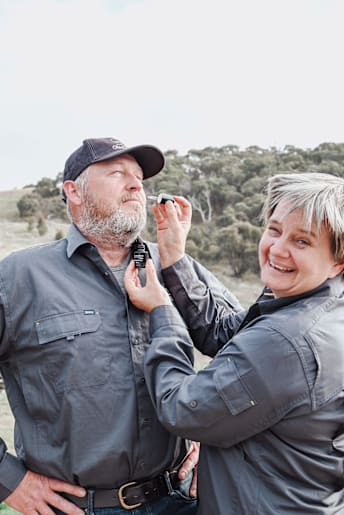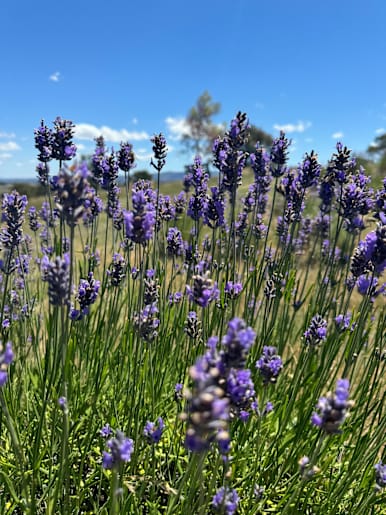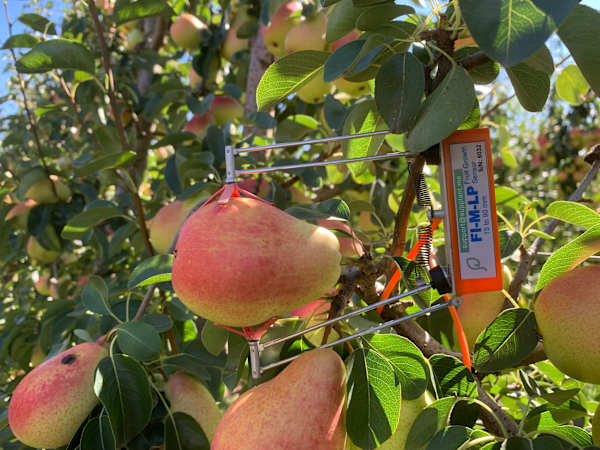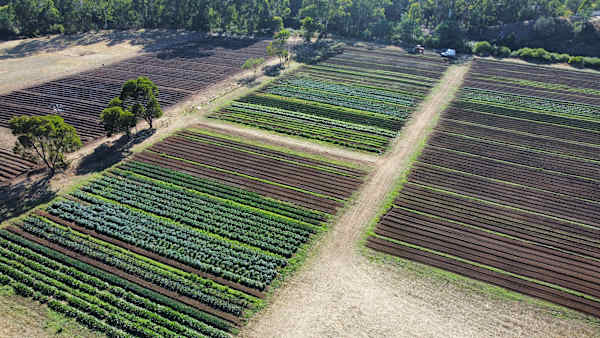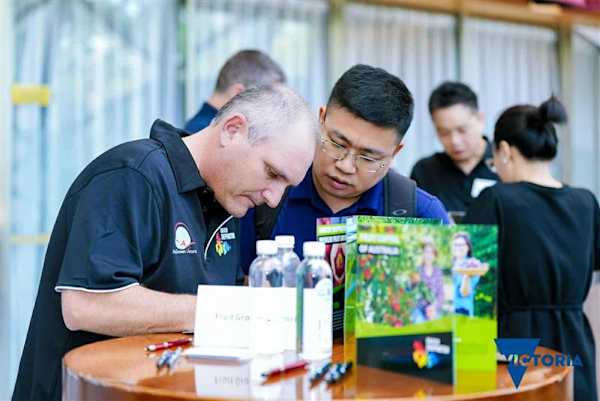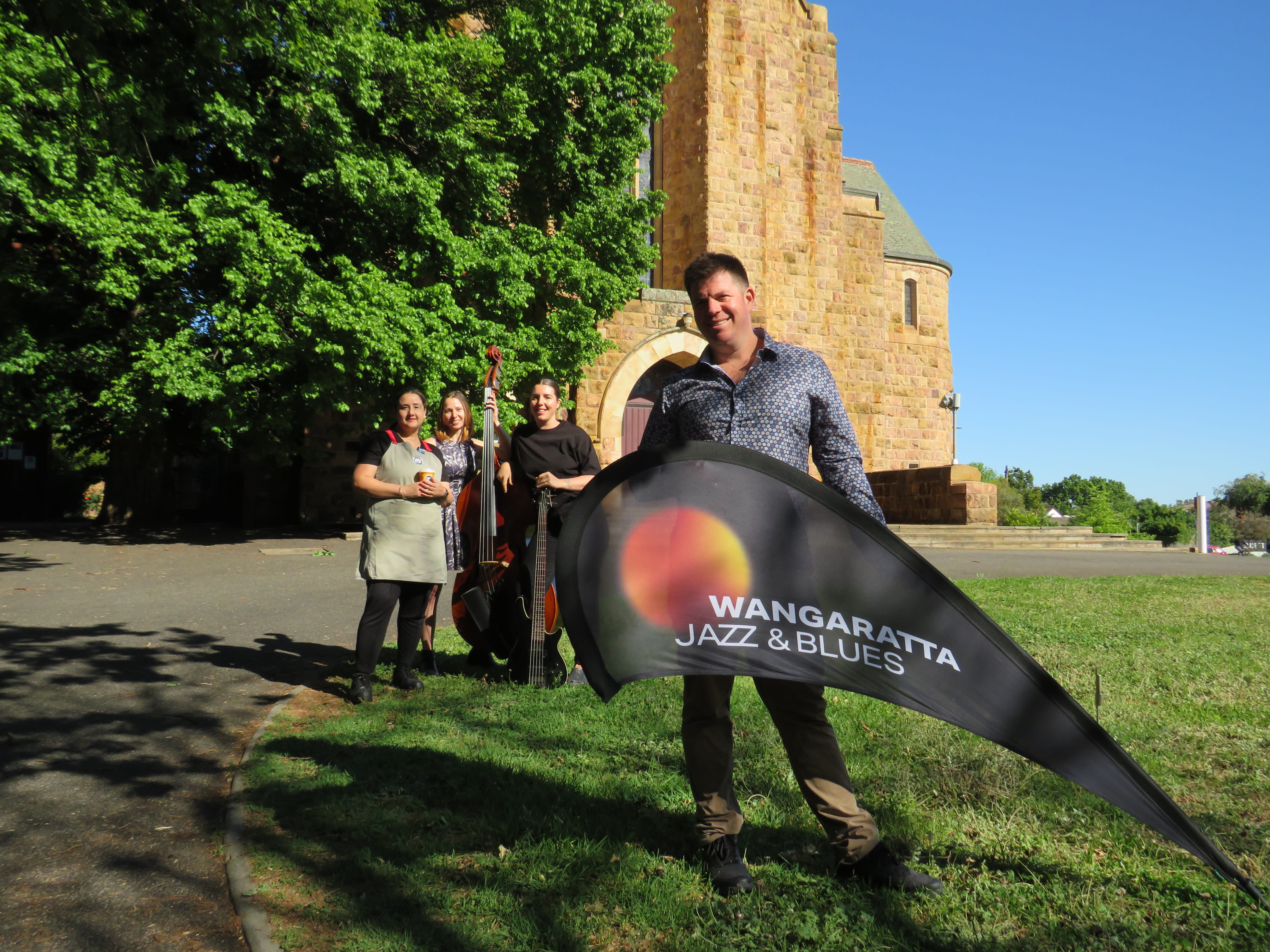Amid the soothing scent of lavender, the Whiteman family has created a vibrant, purpose-driven sanctuary in central Victoria.
Balancing professional careers with a deep commitment to the land, they have cultivated a diverse and inspiring enterprise that blends lavender, bees, bush foods, cut flowers, and sheep—each element thoughtfully chosen to support and enhance local biodiversity.
Building their dream lifestyle has come with challenges, but none greater than they could bear—even with the demands of round-the-clock activity.
Sonia and Stuart Whiteman longed for more than city life in Melbourne’s inner suburbs.
They envisioned a life grounded in nature, one their children could share: climbing trees in their own forest, exploring every corner of their 160-acre property, and growing up immersed in the freedom and wonder of the land they now call home.
Latest Stories
From this vision developed Chintin Botanicals, family farming enterprise and farmshop in the Eastern Macedon Ranges.
“In the early days we had been diversifying native botanicals or bush food, then adding bees, not realising that the lavender season is quite short, so the poor bees didn’t have a lot to work with.
"We grow native botanicals for food and for essential oils and essences taken from lavender.
"The good thing is we use the leaves and the flowers stay for the bees,” said Sonia.
“After 13 years, country people would still consider us rookies but by farming all these different things we have created a beautiful biodiverse environment, so every year we see different types of insects coming through, or new types of small birds, I’ve never seen before, so the biodiversity on the farm is increasing year by year and improving the overall health of the farm.
"I’d like to say it was 100 per cent by design, but there has been a lot of luck as well.
“Its been really tough, holding down our professional jobs, while in a period of growth, and the only way to continue to invest, the way we need, is to continue our day jobs. "We are perpetually exhausted as farming is a twenty-four-seven job.
"It’s incredibly rewarding but incredibly difficult at the same time.
"Our boys are now young adults at university and have jobs off the farm which is really important.
"When they were younger they helped us a lot – we hope that our hard work has instilled some good values in them."
Patience and understanding aren’t always easy.
A customer once asked the price of their herbal tea, then compared it to Aldi’s, while Sonia held up her dirt-covered hand and said, “these hands planted, weeded, and picked that lavender".
"I could have added that it’s grown regeneratively with organic principles, and I can tell you everything that’s happened to that plant—it’s safe and good for you," said Sonia. "If that’s not valued, there’s not much more I can say."
The Whitemans can proudly share how they’ve cared for every animal and plant, grounded in principles of food sovereignty and ethical farming.
"Understanding where food comes from—and how it’s grown—matters deeply for both our environment and economy," Sonia said.
"That’s why we run workshops: to educate people about real farm life."
The Whitemans host school and community groups, teaching them how to distil essential oils while sharing their farming journey.
It’s not just informative—it’s fun and fulfilling, and brings genuine joy to everyone involved.
Chintin’s future continues to flourish, grounded in education, sustainability, and a passion for sharing Australia’s natural bounty.
While many visitors are familiar with using lavender, bush foods remain a mystery to some—often seen as intimidating, said Sonia.
Part of Chintin’s mission is to demystify these native ingredients, showing just how simple they are to use and how extraordinary their flavours can be.
Out the back, a vibrant protea patch invites visitors to pick their own blooms, a hands-on experience that has even been woven into Year 12 curricula.
Younger students, meanwhile, gain a deeper understanding of regenerative farming practices through immersive, real-world learning on the property.
Sonia laughs as she describes herself as “silly enough not to be good at giving up”—driven by sheer determination and a refusal to let the setbacks win.
When she and Stuart bought the farm 13 years ago, they sat on the hill, gazing out over what seemed like lush, green fields.
But by December, reality hit: the vibrant greenery was little more than weeds, now browned and withered under the harsh summer sun.
It was a humbling start, but one that only strengthened their resolve to restore the land and bring their vision to life.
“We’ve put a huge amount of effort into improving the soil—it’s much healthier now than when we started,” said Sonia.
“Last winter, we planted hundreds of new plants, and despite not using irrigation, they survived.
"That alone was such a relief—it saved us from the heartbreak of watching them wither.
"Our land is quite hilly and wasn’t originally considered prime farmland—but now, it’s looking fantastic,” said Sonia.
"We still have plenty of space if we ever want to expand, but for now, we’re content with what we’ve built.”
For a couple who describe themselves as introverted, Sonia and Stuart Whiteman make a powerful impact in their corner of the lush Macedon Ranges.
Their green paddocks thrive with healthy plants and provide rich grazing for their 150 sheep.
Quietly determined and deeply intentional, the Whitemans are planners at heart—devoting each waking hour to thoughtful, regenerative farming.
With a mindset as focused and curious as bees among blossoms, the Whiteman family—including their adult children—have embraced their role as dedicated stewards of the land.
Together, they’ve cultivated a living ‘garden’ that reflects both their values and vision, proving that quiet commitment can yield extraordinary results.

